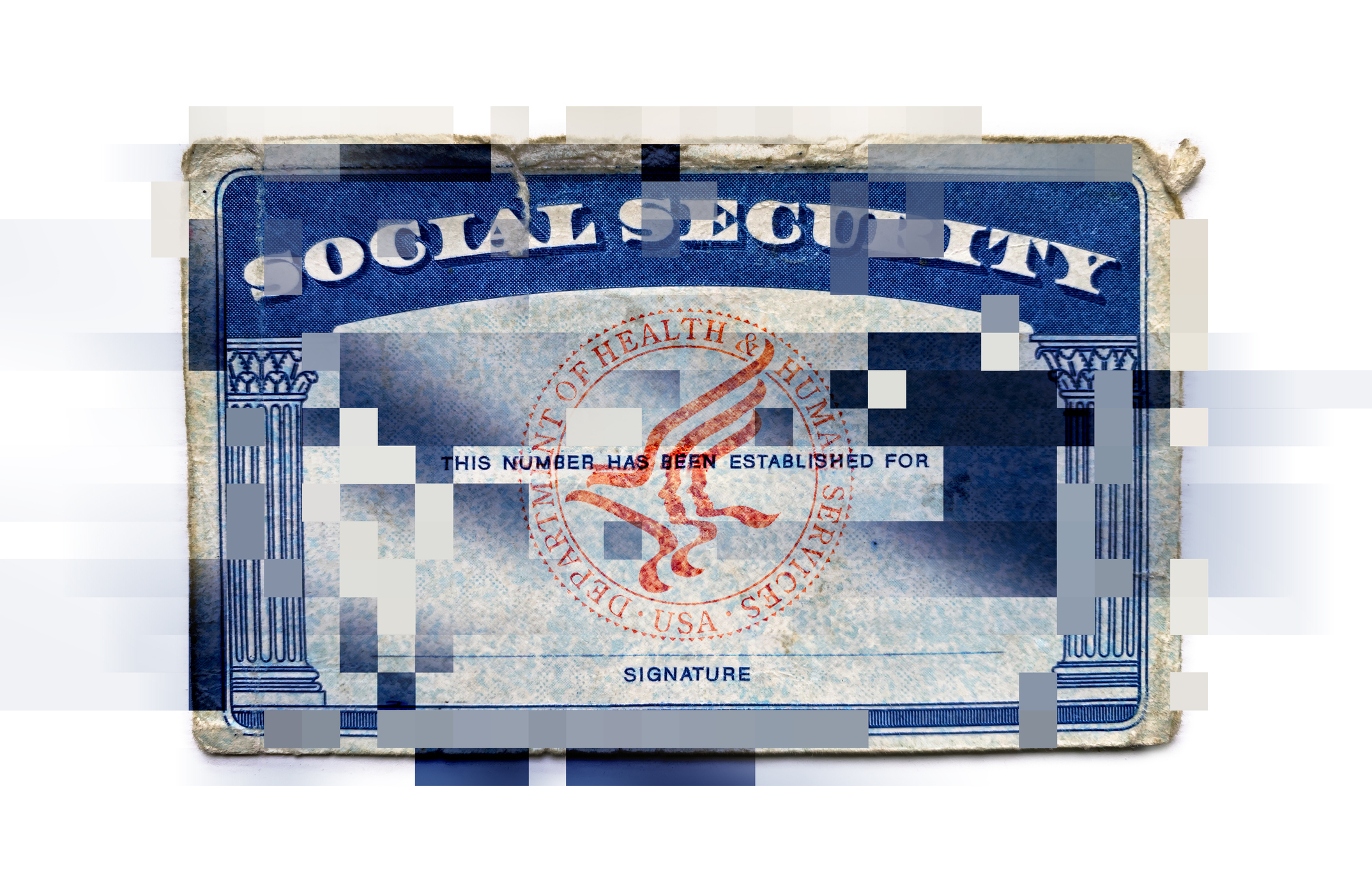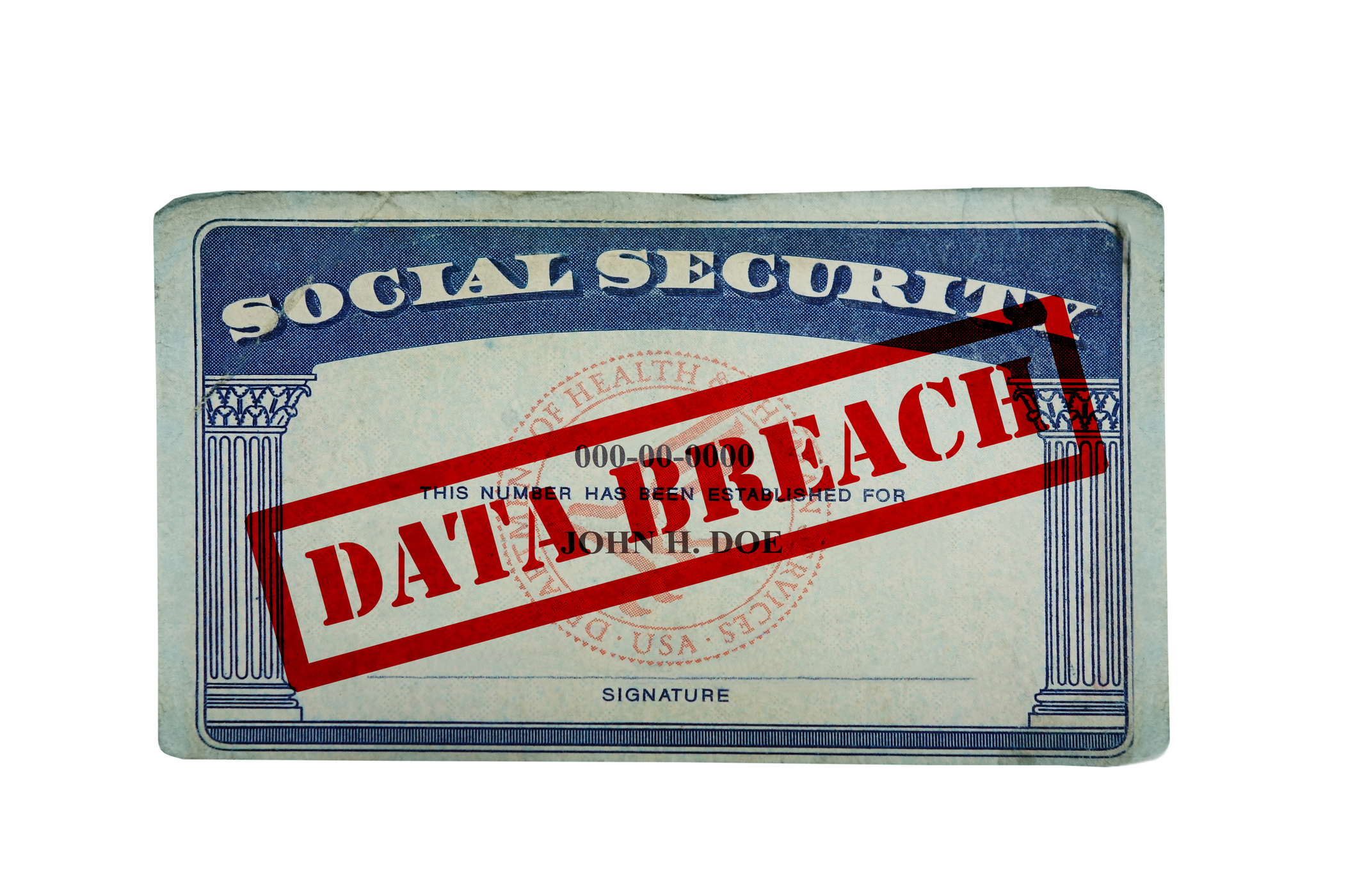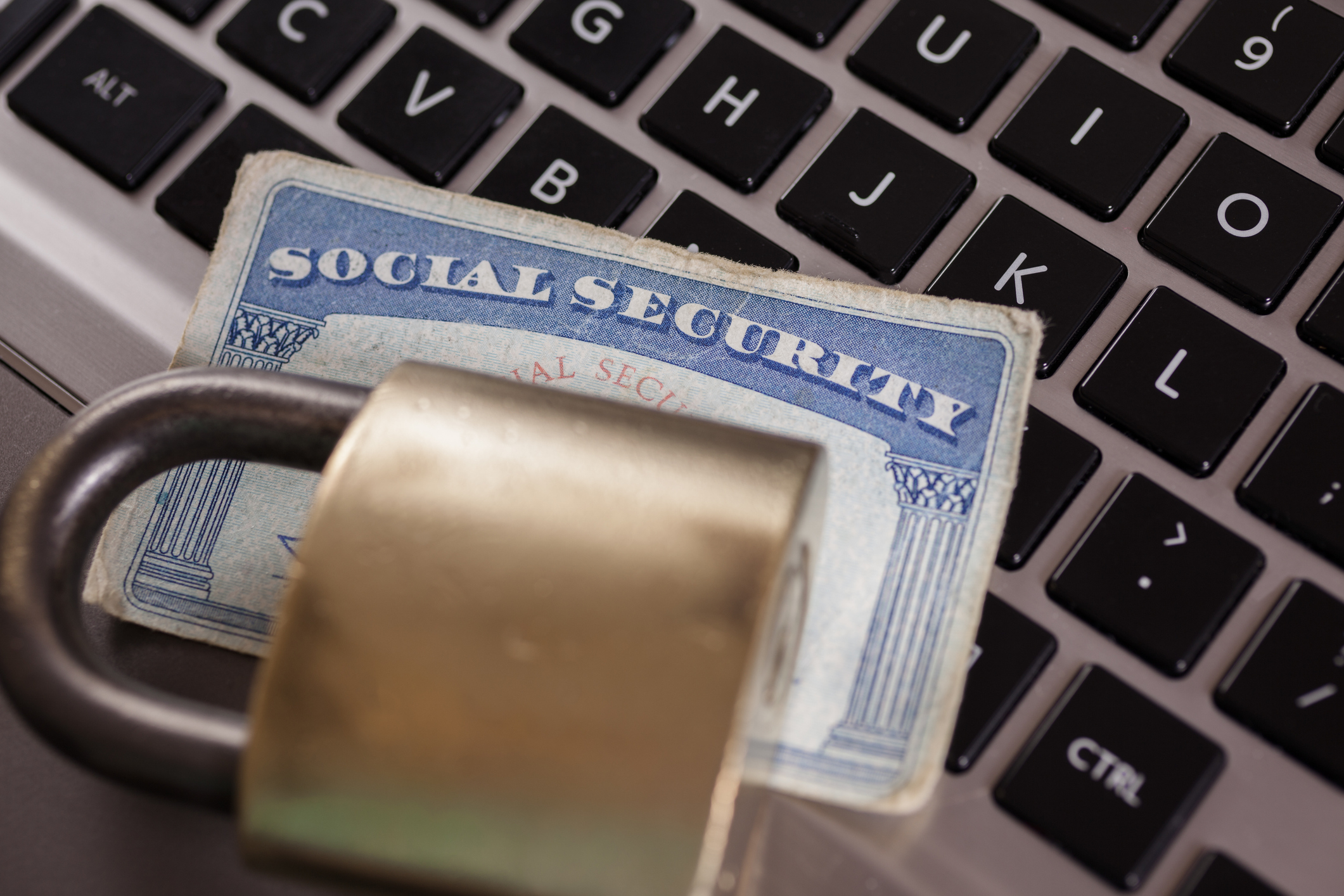11 Places Where You Should Never Give Your Social Security Number
If you give your Social Security number in these places, it could fall into the wrong hands.


Profit and prosper with the best of Kiplinger's advice on investing, taxes, retirement, personal finance and much more. Delivered daily. Enter your email in the box and click Sign Me Up.
You are now subscribed
Your newsletter sign-up was successful
Want to add more newsletters?

Delivered daily
Kiplinger Today
Profit and prosper with the best of Kiplinger's advice on investing, taxes, retirement, personal finance and much more delivered daily. Smart money moves start here.

Sent five days a week
Kiplinger A Step Ahead
Get practical help to make better financial decisions in your everyday life, from spending to savings on top deals.

Delivered daily
Kiplinger Closing Bell
Get today's biggest financial and investing headlines delivered to your inbox every day the U.S. stock market is open.

Sent twice a week
Kiplinger Adviser Intel
Financial pros across the country share best practices and fresh tactics to preserve and grow your wealth.

Delivered weekly
Kiplinger Tax Tips
Trim your federal and state tax bills with practical tax-planning and tax-cutting strategies.

Sent twice a week
Kiplinger Retirement Tips
Your twice-a-week guide to planning and enjoying a financially secure and richly rewarding retirement

Sent bimonthly.
Kiplinger Adviser Angle
Insights for advisers, wealth managers and other financial professionals.

Sent twice a week
Kiplinger Investing Weekly
Your twice-a-week roundup of promising stocks, funds, companies and industries you should consider, ones you should avoid, and why.

Sent weekly for six weeks
Kiplinger Invest for Retirement
Your step-by-step six-part series on how to invest for retirement, from devising a successful strategy to exactly which investments to choose.
Times change, and the places where you should never give your Social Security number are not as obvious as they might have once been. Safeguarding your Social Security number is one of the best ways to prevent identity theft.
Not only should you never carry your Social Security card in your wallet or purse, but you should also rarely give out your Social Security number. The more you give out your Social Security number, the more at risk it is of falling into the wrong hands.
Several of the riskiest places to give out your Social Security number (SSN) might surprise you.
From just $107.88 $24.99 for Kiplinger Personal Finance
Become a smarter, better informed investor. Subscribe from just $107.88 $24.99, plus get up to 4 Special Issues

Sign up for Kiplinger’s Free Newsletters
Profit and prosper with the best of expert advice on investing, taxes, retirement, personal finance and more - straight to your e-mail.
Profit and prosper with the best of expert advice - straight to your e-mail.

Places where you should never give your Social Security number
Safeguarding your Social Security number is essential to protect yourself from identity theft, which can cause significant financial difficulties.
As per the Social Security Administration, "repetitive use and disclosure of SSNs in organizational record-keeping systems multiplies the susceptibility of persons to potential identity theft." For this reason, the Social Security Administration (SSA) is initiating a public information program to encourage the use of alternate identifiers instead of Social Security numbers.
According to the latest data from the Federal Trade Commission's 2024 Consumer Sentinel Network Data Book, approximately 22% of Americans (one in five) have experienced identity theft in their lifetimes, with 1,135,270 identity theft complaints reported in 2024, a 9.5% increase from 2023.
Likewise, the Identity Theft Resource Center’s 2025 Annual Data Breach Report indicates that there were 3,222 data compromises in the U.S. in 2025, a record high, 4% higher than the 2023 peak of 3,202; It's a 79% increase from the 2021 high of 1,860
Below are 11 places where you should never give your Social Security number. If any of the following places ask for it, it's OK (and advised) to say no.
- Universities and colleges
- Banking and financial institutions
- Job applications
- Hospitals
- State governments
- Local government
- Federal government
- Medical businesses (Companies that concentrate on services and products for the medical field, such as distributors of diabetes or dialysis supplies, medical billing services or pharmaceutical companies)
- Non-profit organizations
- Technology companies
- Health insurers and medical offices
Who does need your Social Security number?
Although one of the riskiest places to give out your Social Security number is in the banking industry, most of the time, there's no way around it. When opening a bank account or a credit card, you'll typically be required to share your SSN. However, you should still be aware of the potential dangers and practice caution when giving it out, even under these circumstances.
"You likely have to provide your Social Security number to your bank or employer, but be wary of providing it to anyone else," Ian Bednowitz, former general manager for Identity and Privacy at Gen Digital says, "For instance, if your dentist or doctor asks it on an intake form or when you are registering, don't automatically share it." This also applies to lawyers, financial advisers and crypto exchanges.
He recommends asking exactly why someone needs your SSN and whether they can use another way to verify your identity instead, like a driver's license number or your insurance card. If employers and government agencies do have a good reason to ask for it, verify how they will protect your information.
"It’s obvious there is no slam-dunk 100% way to protect yourself," Adam Levin, a consumer affairs advocate, tells us. "Everywhere you turn, you’re going to run into an organization looking for information from you."

How to stop your SSN from getting stolen
Bednowitz and Levin both share several ways you can prevent your SSN from falling into the wrong hands.
Don’t be so quick to give out your number
Organizations and companies will often ask for your Social Security number, but that doesn’t mean they must have it. You'll be required to provide your Social Security number in any situation that requires your identity to be verified (such as an application for credit or a license) or about which the IRS must be notified.
In any other case, be sure to ask whether the agency, business or organization must have it. Unfortunately, even though many groups — such as private insurers — can’t require your Social Security number, they might refuse to do business with you if you don’t provide it. In those cases, ask if you can give just the last four numbers rather than your full Social Security number.

Don’t give out your Social Security number or any other personal information to someone you don’t know who initiates contact with you by phone, email, or in person
For example, if you receive an email that claims that you must provide personal information to claim a refund from the IRS, it’s a scam. The IRS doesn’t request information from taxpayers by e-mail.
"Avoid sharing your number with any organization unless you have initiated contact and are completely confident you are speaking to them," shares Bednowitz. "That means if anyone contacts you via phone, text or email claiming to be from the IRS, DMV or other government office or a doctor, dentist, financial adviser, etc., politely tell them you will call them back to provide it."
Lock away your Social Security card:
Your Social Security card belongs in a fireproof safe in your home, not in your wallet. Why? Because if someone stole your wallet, they’d be able to steal your identity, too.
Don’t leave your card or any other personal information out where others can see it. Levin says this is a big problem at universities, where students leave out wallets, credit card statements and other items with personal information that can easily be stolen.
It's important to shred any documents with your personal information once you no longer need them.

Protect your number from cyber thieves:
Even though there’s not much you can do to protect your personal information once you hand it over to another business or organization, you can take steps to protect the data on your computer. It can be helpful to install antivirus and Internet security software on your computer and update it frequently.
"Identity theft protection services can include features such as monitoring your credit reports, alerting you when new accounts are opened in your name, or when banks, credit card companies or other financial services providers check your credit," says Bednowitz.
Levin also says you should frequently change passwords for your online accounts and not use the same passwords for financial accounts and social networks.
Control the damage:
Even if you take all these steps, there still is a chance that you'll become a victim of identity theft. That’s why it’s imperative to check your accounts daily to catch any transactions you didn’t make. “If you have time to check e-mail and a social networking site, you can find time to check your bank and credit card accounts,” Levin says.
Take advantage of the free weekly credit report you're entitled to from each of the three credit bureaus — Experian, Equifax and TransUnion. Go to www.annualcreditreport.com to get your reports. Also consider freezing your credit. Freezing your accounts at the three major credit bureaus is the best way to prevent thieves from opening new credit accounts in your name. It's easy to do and is a free service.
If you notice any problems, act quickly to repair the damage. You can contact the credit bureaus and ask them to put a fraud alert or credit freeze on your accounts.
A free fraud alert requires lenders to make some effort to verify your identity before issuing new credit in your name. A credit (or security) freeze prevents the credit reporting companies from releasing your report without your consent.
The credit bureaus charge a fee to initiate a freeze, but you might not have to pay if you're a resident of a state that waives the fee for identity theft victims.
If your wallet (with your Social Security card or any credit cards inside it) is stolen, report it to the police. With a police report, you can place an extended fraud alert, which lasts seven years, on your credit report, and you'll have documentation that will help you bolster your case if you become a victim of identity theft.
See the Federal Trade Commission’s identity theft page for more information about what you can do if your identity has been stolen.
We curate the most important retirement news, tips and lifestyle hacks so you don’t have to. Subscribe to our free, twice-weekly newsletter, Retirement Tips.
Related Content
Profit and prosper with the best of Kiplinger's advice on investing, taxes, retirement, personal finance and much more. Delivered daily. Enter your email in the box and click Sign Me Up.

Award-winning journalist, speaker, family finance expert, and author of Mom and Dad, We Need to Talk.
Cameron Huddleston wrote the daily "Kip Tips" column for Kiplinger.com. She joined Kiplinger in 2001 after graduating from American University with an MA in economic journalism.
- Donna LeValleyRetirement Writer
- Erin BendigPersonal Finance Writer
-
 Betting on Super Bowl 2026? New IRS Tax Changes Could Cost You
Betting on Super Bowl 2026? New IRS Tax Changes Could Cost YouTaxable Income When Super Bowl LX hype fades, some fans may be surprised to learn that sports betting tax rules have shifted.
-
 How Much It Costs to Host a Super Bowl Party in 2026
How Much It Costs to Host a Super Bowl Party in 2026Hosting a Super Bowl party in 2026 could cost you. Here's a breakdown of food, drink and entertainment costs — plus ways to save.
-
 3 Reasons to Use a 5-Year CD As You Approach Retirement
3 Reasons to Use a 5-Year CD As You Approach RetirementA five-year CD can help you reach other milestones as you approach retirement.
-
 Your Adult Kids Are Doing Fine. Is It Time To Spend Some of Their Inheritance?
Your Adult Kids Are Doing Fine. Is It Time To Spend Some of Their Inheritance?If your kids are successful, do they need an inheritance? Ask yourself these four questions before passing down another dollar.
-
 The 4 Estate Planning Documents Every High-Net-Worth Family Needs (Not Just a Will)
The 4 Estate Planning Documents Every High-Net-Worth Family Needs (Not Just a Will)The key to successful estate planning for HNW families isn't just drafting these four documents, but ensuring they're current and immediately accessible.
-
 Love and Legacy: What Couples Rarely Talk About (But Should)
Love and Legacy: What Couples Rarely Talk About (But Should)Couples who talk openly about finances, including estate planning, are more likely to head into retirement joyfully. How can you get the conversation going?
-
 We're 62 With $1.4 Million. I Want to Sell Our Beach House to Retire Now, But My Wife Wants to Keep It and Work Until 70.
We're 62 With $1.4 Million. I Want to Sell Our Beach House to Retire Now, But My Wife Wants to Keep It and Work Until 70.I want to sell the $610K vacation home and retire now, but my wife envisions a beach retirement in 8 years. We asked financial advisers to weigh in.
-
 How to Add a Pet Trust to Your Estate Plan: Don't Leave Your Best Friend to Chance
How to Add a Pet Trust to Your Estate Plan: Don't Leave Your Best Friend to ChanceAdding a pet trust to your estate plan can ensure your pets are properly looked after when you're no longer able to care for them. This is how to go about it.
-
 Want to Avoid Leaving Chaos in Your Wake? Don't Leave Behind an Outdated Estate Plan
Want to Avoid Leaving Chaos in Your Wake? Don't Leave Behind an Outdated Estate PlanAn outdated or incomplete estate plan could cause confusion for those handling your affairs at a difficult time. This guide highlights what to update and when.
-
 I'm a Financial Adviser: This Is Why I Became an Advocate for Fee-Only Financial Advice
I'm a Financial Adviser: This Is Why I Became an Advocate for Fee-Only Financial AdviceCan financial advisers who earn commissions on product sales give clients the best advice? For one professional, changing track was the clear choice.
-
 Quiz: Are You Ready for the 2026 401(k) Catch-Up Shakeup?
Quiz: Are You Ready for the 2026 401(k) Catch-Up Shakeup?Quiz If you are 50 or older and a high earner, these new catch-up rules fundamentally change how your "extra" retirement savings are taxed and reported.